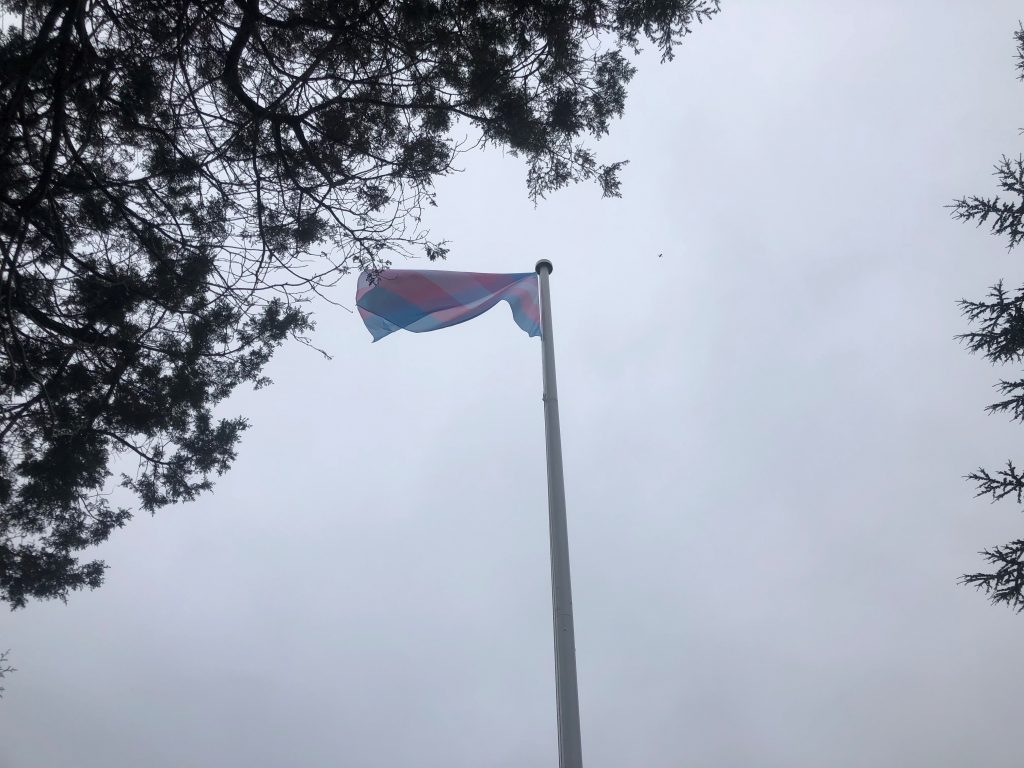By Rowan Watson, Chaplaincy Assistant, University of Reading
Through working at the Chaplaincy, we experience a great variety of world views. Some students explain their strong belief in monarchy as the best form of government, others assure me that all life on Earth is evolving into crabs. One of our favourite topics of conversation is simply asking ‘What do you believe God is like?’.
A popular answer is the description of a distant and uncaring being, living in the clouds. Occasionally God has been described to me as apathetic to our pain, watching His creations suffer and disdainfully refusing to do anything about it. It is no surprise that people with these views see Christianity as easily separated from the Santa Claus, Christmas Movies, Turkey and Roast potatoes parts of Christmas, but I don’t think this is entirely true.
At Christmas, we Christians celebrate the birth of Jesus, who we consider to be God on Earth. The key part of this for me is that God did not choose to be a distant being in the clouds – He saw His creations suffering and refused to ignore it.
Christmas is about the incarnation. This means part of the indescribable God-ness of God being funnelled into human form. Jesus was fully God whilst also being fully Man. In easier terms, the incarnation is about God taking a human shape and moving into our neighbourhood, right next door. God draws near to us.
Over the centuries, this idea has morphed into traditions about being generous to one another, opening our homes to guests and giving them the best we have. God is a close friend and treats us better than we deserve, so let’s treat others that way too!
This part of Christmas has something more to say to those who experience a less joyful Christmas. When the night draws in and the cold confines us to our houses, winter can leave some of us withdrawn from our social circles. International students can find this time particularly challenging because of their UK friends returning home and campus shutting shop for the holidays.
Those with difficult family relationships face a different sort of loneliness. Being estranged from those who are meant to support you unconditionally can cause a lot of pain at Christmas. In the UK our cultural focus is around families and generosity, but these are not a light in a dark time for everyone.
Not to mention that ‘isolation’ has taken on a whole new meaning recently. As I write, it is uncertain to what extent this will be a feature of our collective Christmases. I personally experience some of these issues, albeit not as severely as some, and so Christmas time can bring about a feeling of loneliness.
I find that Christmas, at its core, sets out to tackle issues like these. We believe that God is so fond of His Creations that He chose to walk among them, and that this love continues. When I find myself feeling isolated, afraid and pessimistic about the future, I remind myself of that God comforts me by sitting beside me. I am loved by the Creator of everything in existence.
And it is not only through God that we can find this comfort. Many Christians take this time to reach out to those in the community who are struggling. Some members of our community are offering places at their Christmas table for the most important meal of the year in this spirit, details on how to take a place at a local person’s table, are below.
Beyond that, participating in Christmas festivities can bring opportunities to meet a new side of the community. If family cannot be part of your Christmas celebrations, a ‘friends’ style family embodies the spirit of the season and is just as joyful and fulfilling. I find that online celebrations can feel distant, but when a loved one is the other side of the world, it can bring them into your living room and allow you to celebrate together.
Check out the University Chaplaincy list of What’s On in Reading this season, and go and seek God while He is near, either through religious ceremony or through a bottle of mulled wine with a friend on Facetime. He’s in both places.
What’s on this Christmas?
Events collated by the University Chaplaincy and shared in good faith. For more events see: https://www.whatsonreading.com/
Market Yard
When: 26th November – 23rd December
Where: Reading Printhouse
What: Market Yard is transforming into a unique space to socialise, eat and drink
Cost: Free
More information here: https://www.marketyard.co.uk/
Winter Wonderland
When: 13th November – 3rd January
Where: Hills Meadow by Reading Bridge
What: An exciting Christmas adventure for people of all ages that includes ice skating, Santa’s grotto and a variety of food and drink
Cost: From £12
More information here: https://www.facebook.com/outdooricerink.co.uk/
Book tickets here: https://www.ticketsource.co.uk/ice-skating
The Invisible Dress Exhibition
When: 28th November – 5th January
Where: HUMOS, Caversham
What: ‘The Invisible Dress’ refers to the scents that we use to complete our look. This exhibition combines fashion illustration, perfume and floral arrangements.
Cost: Free
More information here:
https://whatsonreading.com/venues/humos/whats-on/invisible-dress
Twilight Trail: Biscuit Town
When: 3rd – 31st December
Where: Abbey Ruins and Forbury Gardens
What: An accessible open-air light trail experience
Cost: From £8
Book tickets here: https://web.livingreading.co.uk/twilight-trail-2021
The Snow Queen
When: 3rd – 24th December
Where: South Street Arts Centre
What: A new play, based on the original story by Hans Christian Anderson about two best friends and a dangerous journey across Scandinavia
Cost: From £12
Book tickets here: https://whatsonreading.com/snow-queen
A Christmas Carol
When: 3rd – 31st December
Where: Reading Rep Theatre
What: A live performance of the Christmas classic, A Christmas Carol, performed by Reading Rep Theatre
Cost: From £14
Book tickets here: https://www.readingrep.com/a-christmas-carol/
Forgetful Elf Trail
When:4th – 23rd December
Where: Reading Museum
What: Help the Elf find his lost belongings around the museum. Includes writing letter to Santa and Christmas craft pack
Cost: £3 per pack
More information here: https://www.readingmuseum.org.uk/holiday-fun-reading-museum
Beauty and the Beast
When: 4th December – 3rd January
Where: The Hexagon
What: An exciting pantomime featuring Justin Fletcher, also known as Mr Tumble
Cost: From £15
Book tickets here: https://whatsonreading.com/beauty-and-beast
Student Christmas Day Lunch
When: 25th December, 1-2.30pm
Where: Our Lady of Peace church hall
What: Turkey lunch hosted by Chaplain, Sister Vivian (10 spaces). Booking essential: email with food allergy details before Friday 17th December 5pm to: v.onyeneho@reading.ac.uk
Cost: Free
For times of (free) Christmas and Carol services, Google your nearest church.
General
Reading Museum
What: Archaeology, Art, History and Natural History. Café and shop.
Cost: Free
Opening times and more information here: https://www.readingmuseum.org.uk/
Museum of English Rural Life (MERL)
What: History of English farming and country life. Garden, café, and shop
Cost: Free
Opening times and more information here: https://merl.reading.ac.uk/
Want to be hosted for a meal or receive hospitality from a local family during the break?
Friends International connects international students with local hosts. Download the App: https://www.friendsinternational.uk/international-student-app/ click on “Local Link”.


























